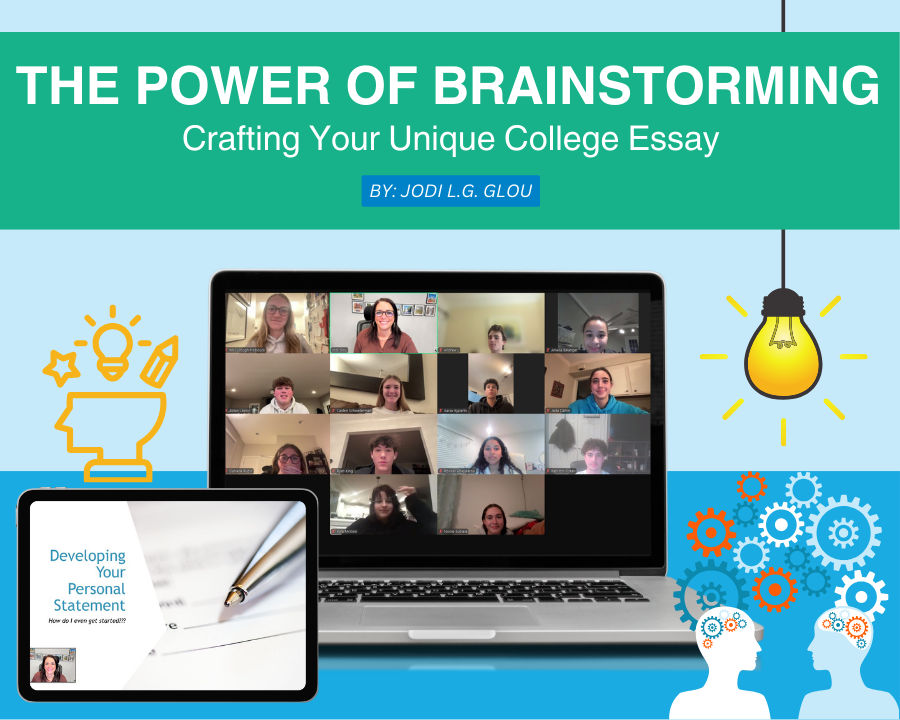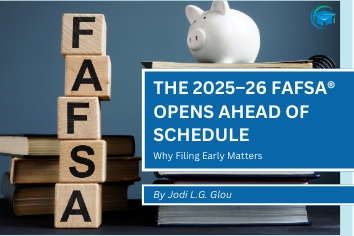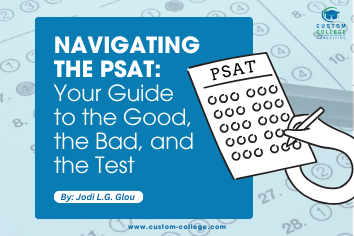The Invisible Minority on College Campuses
College-bound students with ADHD represent a growing yet still often overlooked population in higher education. As we counsel more families with learning differences, building a foundation of support is critical before students ever set foot onto a college campus. We cannot rely on current high school 504/ IEP documents and college resources to set our students up for success. It is up to us to provide the skills necessary to help them thrive.
The Importance of Self-Advocacy
In high school, many parents are still the ones advocating for their students. In fact, oftentimes, students aren’t taken seriously if they encounter a problem concerning their disability and communicate it themselves. Such a system perpetuates the need to rely on parents or guardians for help. As we guide our students through the college planning process, it is crucial to build in steps to our programs to allow students to be their most effective advocates. So how do we accomplish this task?
As counselors, we need both qualitative and quantitive data to help us become more familiar with our clients’ learning challenges, successes, and preferences. In addition to reviewing neuropsych testing results and the student's IEP/504 Plans, request that the family connects you with the student’s teachers, tutors, educational coaches, and high school counselors.
Before a student can learn the power of self-advocacy, we must provide a safe space for them to develop such skills through role-playing. Familiarize them with the four steps of self-advocacy so they understand the goal. They include:
- Knowing one’s strengths
- Being aware of one’s weaknesses
- Identify strategies to overcome those weaknesses
- Effectively communicate those needs to others
Encourage the student to review their testing and documentation. Have them speak with their therapists, specialists, etc., about the specific findings and how they may impact them directly and indirectly. Since there will be times when the student will be required to educate others about their learning differences, the more knowledgeable they are, the more effective they will be at communicating them.
Empowering a student with ADHD to self-advocate in high school will develop skills necessary for success in learning and life. Encourage them to regularly reflect on what’s going well and what isn’t, as well as what action needs to be taken.
Time Management & Organizational Strategies
The unofficial adage of ADHD time management is, “By the time you feel it, it’s too late.” Since ADHD is mostly about executive dysfunction, those deficits explain why people with ADHD struggle as they do. Many students with ADHD are stuck in the present and are challenged to complete tasks that may benefit them later. Therefore, looking at ADHD as being about the use of time may change how you can help your student manage it more effectively.
Some practical ways for the ADHD brain to see time can be as simple as filling your area with clocks. Analog clocks work best because they
SHOW the passage of time. Also, before each meeting, spend time planning priorities for the session as well as homework assignments. Suggest that your student use an alarm to indicate how much time they should spend on each task. And finally, try to reduce external distractions by having parents limit internet and screen use.
Helping to Manage Stress
Applying to college can be stressful even for neurotypical students, but oftentimes the mere thought of college can trigger stress for kids with ADHD. Researchers note that since stress affects the prefrontal cortex, the same location of the brain affected by ADHD, it is magnified significantly, impacting all aspects of an individual living with ADHD’s life. Overscheduling a student with ADHD can also raise their stress. A balance between activity and relaxation is critical for their mental health.
There are many tips you can encourage your students to use to help them manage their stressors. The most important thing is to recognize the true culprit. Since ADHD is neurobiological, symptoms will not lessen without treatment. Exercise is one of the most effective stress-reducers. Since the brain’s serotonin levels increase during physical activity, it combats cortisol, also known as the stress hormone.
Oftentimes when students with ADHD begin to make progress, they abandon the strategies that helped them get there in the first place. So it is important to be vigilant to maintain our students’ progress.
Assessing College Readiness
When accessing college readiness for students with ADHD, it is important to evaluate their academic skills, metacognition, self-advocacy, executive function, and motivation and confidence (Landmark College Inventory).
There are many post-secondary options for students with learning differences that may help students prepare for college, including:
- Postgraduate year
- Gap Year
- Alternative Programs
- Special Focus Schools/Programs
It is important to note that not all skills develop at the same time, and each child has their own journey toward college success. As college advisors, it is important to not only help students with planning for the application process but also prepare them to flourish on campus.










